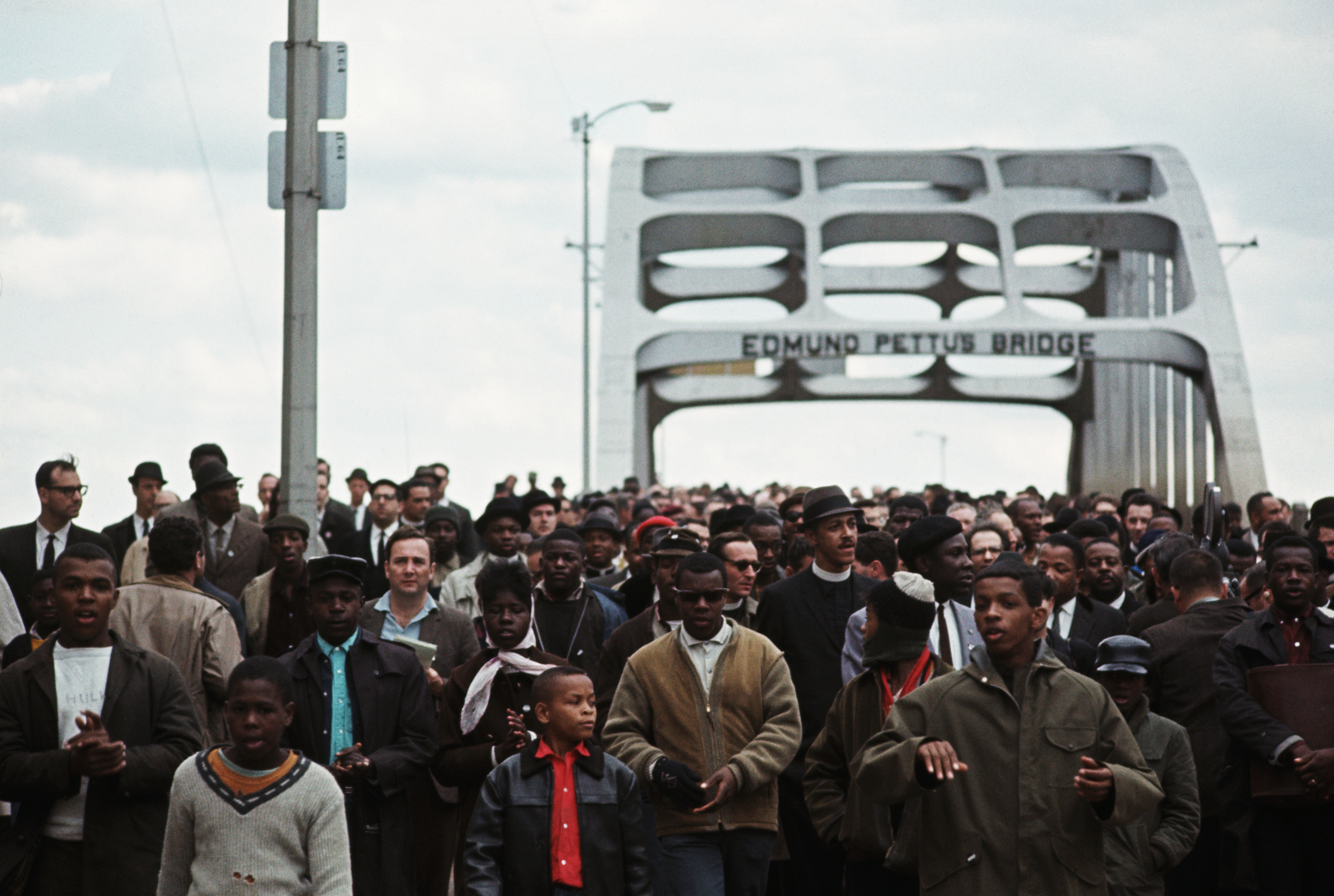
Sixty years ago, thousands of Americans marched from Selma to Montgomery, calling for the realization of the fundamental right to vote regardless of race, color, or creed. Though the right of black Americans to participate in our democratic process had been recognized long before, that right existed only in words, not in practice. Those who marched did so to make reality reflect the text of the 15th Amendment to the United States Constitution.
The heroes of the Civil Rights Movement confronted the darkest demons of hatred, bigotry, and racism. They were humanity’s better angels and forever changed the course of our state’s and nation’s history. Courageous Alabamians like Rosa Parks and John Lewis truly did bend the moral arc of the universe.
As an Alabamian, the struggle for the fulfillment of Thomas Jefferson’s pronouncement in the Declaration of Independence “that all men are created equal, that they are endowed by their Creator with certain unalienable rights” that motivated the Civil Rights Movement has always been immediate to me.
Ours is a state that saw the birth of both the Confederacy and the Civil Rights Movement. Throughout that time period, it saw the worst and best of us, the evils of slavery and segregation and the triumphant moral battle for freedom and equality for black Americans. Alabama is where Martin Luther King Jr. preached, “If you love your enemies, you will discover that at the very root of love is the power of redemption.” It is impossible to overstate the enduring impact our state’s history has left us.
If the civil rights marchers could put their lives on the line to fight for one of the most important causes ever to exist, we can do the hard things in front of us — and ultimately, that’s what God calls us to do.

But the Civil Rights Movement is not only Alabama’s history. It is not only American history. It is some of the most significant history of all mankind.
Those who spurred the Civil Rights Movement put everything on the line. They faced the possibility of, brutal violence, severe injury, and even death, and, of course, many lost their lives in pursuit of justice. They put themselves in danger for a goal they could not possibly be sure would be reached in their lifetimes.
It makes the challenges we face today seem not impossible but inevitable to be overcome. It makes it even less acceptable for us to freeze in fear of facing adversity. If the civil rights marchers could put their lives on the line to fight for one of the most important causes ever to exist, we can do the hard things in front of us — and ultimately, that’s what God calls us to do.
For our entire history, our nation has existed on the bedrock notion our rights are not given by government but by God; our value as humans does not come from a king or Congress but from our Creator.
Our Founding Fathers were radicals in this way, and their revolutionary spirit carried forward from the signing of the Declaration of Independence and ratification of the Constitution through Abraham Lincoln’s Gettysburg Address, in which he cited Thomas Jefferson’s words to explain why slavery was not just an affront to human dignity but profoundly un-American.
It is that same eternal truth that flows through the bloodstreams of all Americans — that race, color, creed, or any other immutable characteristic does not make one group superior to another — that those who marched from Selma to Montgomery carried with them.
The Civil Rights Movement did not challenge the American idea. Rather, it challenged our people and our system of government to fully embrace the American idea and to more faithfully live up to the standards the revolutionaries who declared our independence set for us so long ago.
Katie Britt represents Alabama in the United States Senate.




